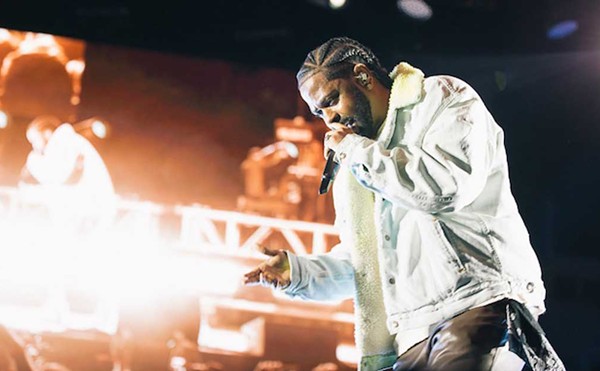Sixteen Horsepower’s palette of sparse, windswept murder ballads and desolate, dread-”full” dirges follows an aesthetic as frightening and convicted as Robert Mitchum’s character from The Night of the Hunter. Like Mitchum’s phony priest, his fingers tattooed with “love” and “hate,” Sixteen Horsepower singer David Eugene Edwards pursues a wild-eyed course, tracking the narrow line between righteousness and sin, between the resilience of hope and the trailing air of despondency and death. Edwards, himself a preacher’s son, brings to bear a deep, ominous baritone recalling the primal, hypnotic quality of Jim Morrison, and leading a similar cruise into man’s dark psychology.
Folklore, the band’s sixth album, practically leaves its country roots in the dust for a host of experiments, including one that melds their dark, Pentecostal country with goth, adding somber piano and heavy-hearted strings for a sound between early Palace and Joy Division (“Beyond the Pale,” “Blessed Persistence”). While the standard “Sinnerman,” and the wonderful bounding bluegrass of the Carter Family tune, “Single Girl,” are in keeping with the band’s past albums, they sit side by side with the album closing French waltz, “La Robe a Parasol,” whose accordion gives it an Irish flavor, and the slow-building drone of “Horse Head Fiddle,” another old standard. For a band whose harrowing country was singular in sound, Folklore delivers evidence that the size and shape of Sixteen Horspower’s vision is more important than the medium in which it’s told.
E-mail Chris Parker at [email protected].





